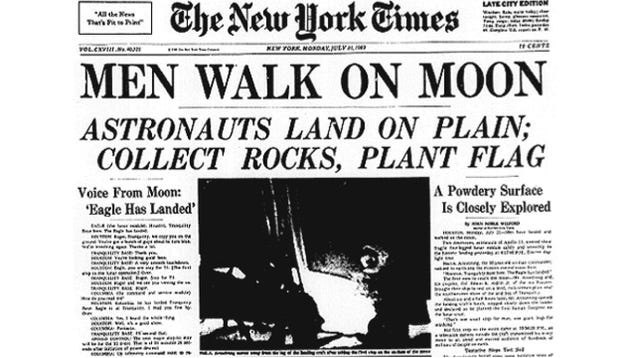Economics Without
The B.S.**: Leadership That Inspires
[** Double
entendre intended.]
Leadership
That Inspires
Productivity
drives an economy; AND, innovation drives productivity.
Productivity
is making things. It is not asset
inflation – the value of stocks, bonds, and
financial derivatives.
Today
we have “experts” and knowledgeable people who will tell you the importance of
human relationships, gaining somebody’s trust, confidence for a business to
succeed. While these traits are desirable,
I’ll bet these “experts” never worked in a manufacturing environment, never had
to make a tangible product that needed to be shipped out the door, or never had
to work in a creative environment for a specific product. When you work in a manufacturing environment
it not just who you know, it’s what you know.
Your knowledge has to be based on the sciences, math, engineering,
technical know-how. This is true
throughout the workplace, white-collar and blue-collar. Emphasizing manufacturing will get us refocused
on education in the sciences, math, engineering, and technology. People educated as such will place value on
scientific inquiry rather than belief systems.
These values do not get the proper emphasis in a consumer economy which
is more attuned to a sales pitch, engendering warmth and relationships. Will it take another “Sputnik” to wake us up.
And
mentioning Sputnik reminds me, in our $3.8
TRILLION budget, what does NASA get…$18
billion. Not to mention that the
financial industry got bailed out in one year with several trillion
dollars. NASA hasn’t spent that in its
existence in over forty years. Do I have
to listen to some cynic say, “We spent billions of dollars on space and what
did we get? Tang!” Just what has NASA done with that $18 billion
in any year? – a space station, the Mars Rover, or how about research that
furthered cures for breast cancer, MRI’s and CAT scans, dialysis, artificial
limbs, virtual reality. And in forty
years they have barely been able to get beyond the earth boundaries of space
because of the paltry funding and lack of leadership in our society. In the 1960’s NASA was visionary and that is
why people went into the sciences, math, engineering, and technical fields. Their discoveries affected our daily
lives. We have lost our vision. And NASA is only one discipline that I could
mention. How about ocean exploration, at
its depths, or medicine and biology?
There is so much more that we could do.
We are listening to the wrong people for leadership. We need the inspiration that we had in the
50’s and 60’s. When we pick up a
newspaper the first page should be filled like it was in the 60’s, with rockets
going into space. The Wall Street Crowd
should be relegated to the back of the paper with the Business Section and
Society News. We need to stop listening
to accountants and find leaders that will turn our visionaries loose.
Burt Rutan
Burt
Rutan is an aerospace engineer and entrepreneur. He spoke on space innovation and exploration at a forum hosted by the
World Affairs Council of Jacksonville and the University of North Florida.
He discussed the history of manned spaceflight and contrasted today’s
space program to the pioneering days of space travel. Rutan is the
designer of “SpaceShipOne” which launched the era of commercial space travel.
He also designed the Voyager aircraft, which became the first
airplane to fly nonstop around the world without refueling in 1986. Rutan is currently working with Microsoft
co-founder Paul Allen on a new project known as the Stratolaunch. It's part
airplane and part spaceship and scheduled to fly by 2016. Rutan has some interesting comments on leadership, motivation,
etc.
Today’s Federal Budget
is approximately $3.5 Trillion. The NASA
part of that budget is approximately $18 Billion – less than 1% of the Federal
Budget. In 1960's NASA budget was 3% of the
Federal Budget during the race to the moon.
Dr.
Neil deGrasse Tyson
Dr. Neil deGrasse Tyson is Director
of the Hayden Planetarium, and best-belling author and host of COSMOS.
President John F.
Kennedy
At an off-the-record meeting held on November
21, 1962 with NASA Administrator James Webb, NASA Deputy Administrator Robert
Seamans, and Special Assistant to the President Jerome Wiesner, President
Kennedy states clearly that his administration's priority is for the United
States to land on the Moon before the Soviet Union. This conversation is a part
of "Listening In: The Secret White House Recordings of John F.
Kennedy," available in stores now: http://bit.ly/RcGzgP
In this tape you will hear President Kennedy
trying to emphasize to a bureaucrat (Mr. Webb) and his own advisor (Mr. Wiesner)
the prime importance of the mission. He
is trying to light a fire under their asses so that they understand the
importance of the mission. He makes some
cryptic
remarks, “I don’t care about Space. I
just want to be first!” Listen as a
leader tries to motivate subordinates.
Now
do you know why our economy, and society, is in the tank and nobody knows how
to get it moving again?

